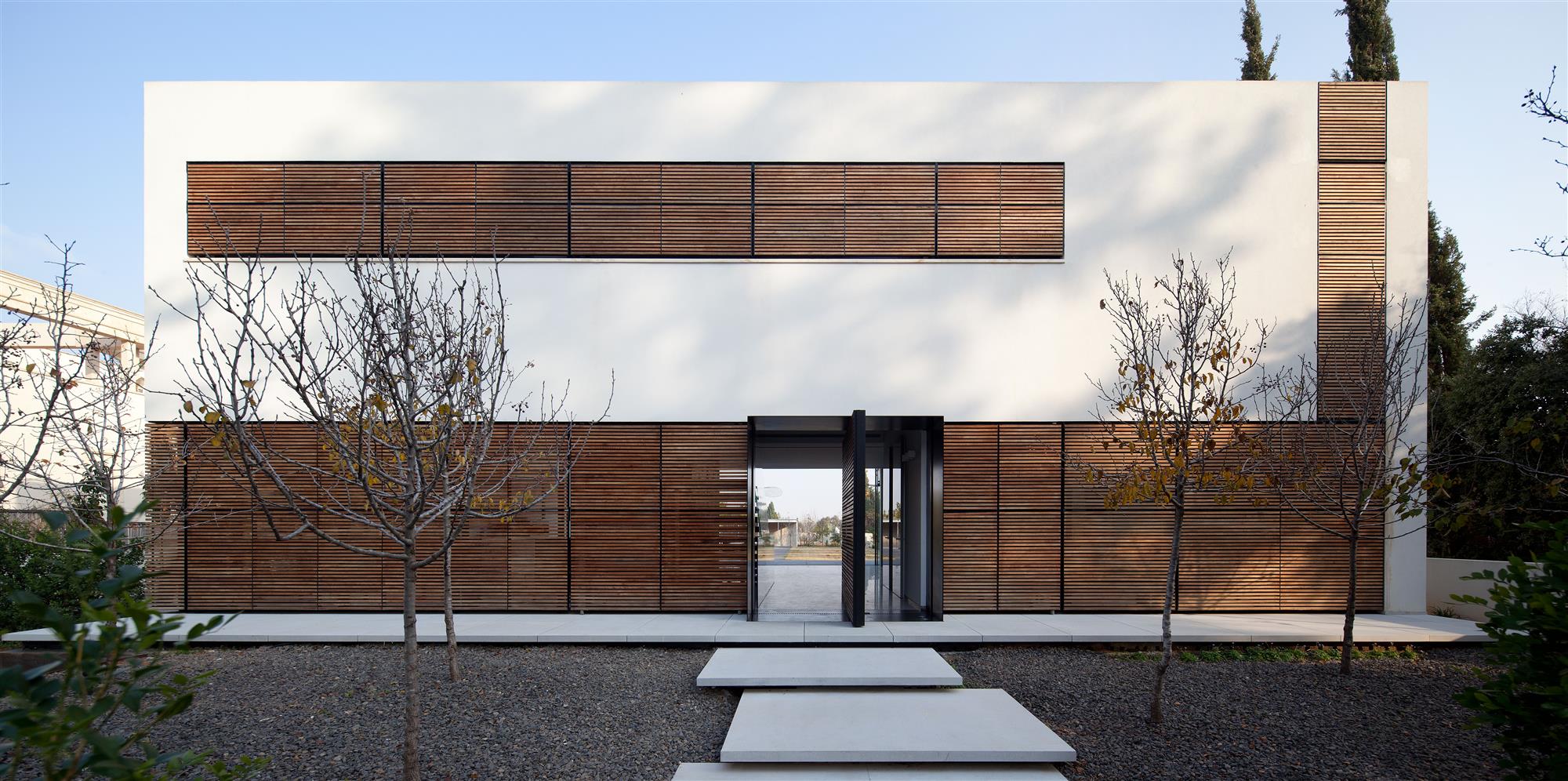Site area: 1500 sqmTotal floor area: 600 sqm
Design : 2008-2012
Initial planning:kimel eshkolot
Program: Single Family House
Planning in rectangular plots represents the most dramatic encounter between intuition and pure rational thought – a white page – the most frightening moment in the life of an architect: no context, empty – the freedom of the infinite and absolute embarrassment – the first simple, lone line holds no promise of perfection.
In the fourth century BC, Hellenistic culture introduced the world to Hippodamus’ urban planning, based on a square grid. It divided the urban environment into areas called insula – as if precisely drawn onto a clean page free from any considerations of the actual terrain. Some insula were woven into the fabric of urban construction while others were left open to be used as public spaces.
The Hippodamian grid is the product of pure rational thought calibrated toward order, control, sequence and efficient infrastructure. All were successfully realized by the Hippodamian manner of design, which created bustling but legible cities, rendering it a cerebral act that reverberates even in today’s urban environments and their peripheries.
The three-dimensional planning of Hippodamus’ urban planning doggedly remains the first instinct when encountering the plain, blank white paper – creating the details of spaces by the delineation of boundaries in one fell swoop – allowing freedom in the inner areas which are expressed in their division.
In the beginning of 2000, in the movie “Dogville,” the Danish director Lars von Trier told a dark story set in an American town. Von Trier filmed in an empty study with white lines only, on the floor, used to represent the town homes and streets. The lines emphasized the importance of the characters’ humanity, in contrast, and the examination of American culture principally – they expressed the illusion of the wall as a physical boundary by removing it and using the written word only to portray the function of a space.
The same conceptual process is used in the design of the Kfar Shmariyahu home before us built on an empty lot – tabula rasa – almost wholly void of context – characterized by its suburban environment – a common road with private plots on either side – each with a gate through which the home is deciphered.
In the case at hand, the entrance area is marked by a blackened iron frame facing the street. The facade of the home is made of paneled wood and plaster surfaces which at first glance lend themselves to a flat and opaque appearance. A closer look reveals that the latticed wood is a system of doors and shutters behind which the home is hidden.
The ground floor is open on both sides – divided into three key spaces each possessing its own identity – naked and singular in appearance – as if only by dint of the furniture selected can the space be given function.
The three chambers are connected by a long open area running alongside the backyard – it acts as a uniting thoroughfare that amplifies visually their division into different fields.
A similar schema is used on the upper floor where the private rooms are located – cut in a three dimensional grid as revealed from the back facade.
The front and back facades both offer different ranges of spatial openness and depth – The front facade shelters the privacy of the interior whereas the back facade frames the lives of the inhabitants as if on a Roman-era stage.
When the front facade’s shutters are open they entirely deconstruct the face of the structure and thus reinforce the function of the home’s entrance gate.
Conversely, in the back of the home, the framing of the facade creates depth as it appears as a screen of sorts – preventing the invasion of privacy and allowing for intimacy.
At night – the reflection of the swimming pool – multiplies the fields – creating a constant and natural grid – in which order and freedom and are arranged together.

